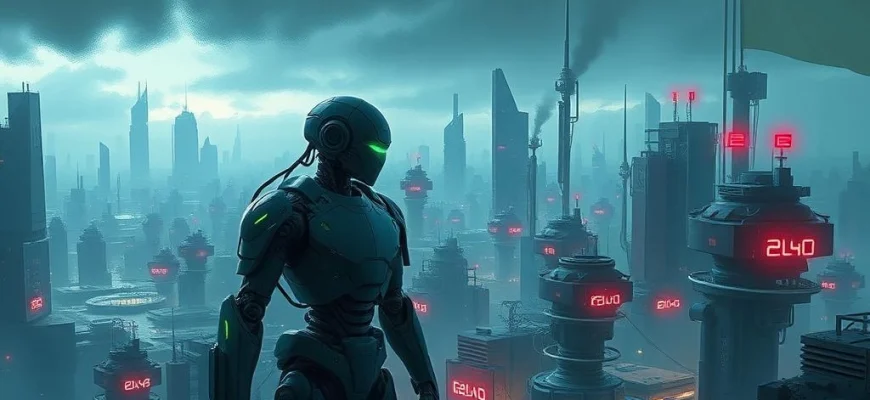If you enjoyed the thought-provoking sci-fi thriller 'Automata' (2014), you're in for a treat! This article explores 10 similar movies and shows that delve into themes of artificial intelligence, human survival, and dystopian futures. Whether you're a fan of cyberpunk aesthetics or philosophical dilemmas, these recommendations will keep you engaged and questioning the boundaries of humanity and technology.
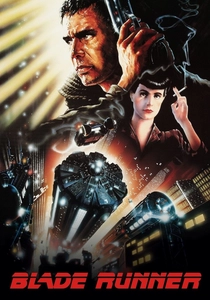
Blade Runner (1982)
Description: A dystopian sci-fi film that explores themes of artificial intelligence, humanity, and the blurred lines between man and machine. Its dark, cyberpunk aesthetic and philosophical undertones make it a standout in the genre.
Fact: The film's iconic 'tears in rain' monologue was improvised by actor Rutger Hauer. It was initially a box office disappointment but later became a cult classic.
 Watch Now
Watch Now 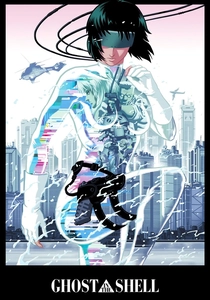
Ghost in the Shell (1995)
Description: An anime masterpiece that questions identity and consciousness in a world where humans and machines are increasingly intertwined. Its cyberpunk setting and existential themes are deeply thought-provoking.
Fact: The film's animation was so detailed that it took over 100,000 cels to produce. It heavily influenced later sci-fi films, including The Matrix.
 Watch Now
Watch Now 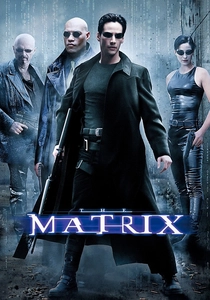
The Matrix (1999)
Description: A groundbreaking sci-fi action film that delves into the nature of reality, artificial intelligence, and human resistance against machines. Its innovative visual effects and deep philosophical questions resonate strongly.
Fact: The film's bullet time effect was achieved using a rig of still cameras and was revolutionary at the time. It won four Academy Awards, all in technical categories.
 Watch Now
Watch Now 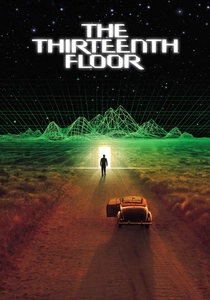
The Thirteenth Floor (1999)
Description: A sci-fi mystery that explores simulated realities and the nature of existence. Its noir-inspired visuals and twisty plot keep viewers questioning what is real.
Fact: The film is based on the novel 'Simulacron-3' by Daniel F. Galouye. It was released the same year as The Matrix but received less attention.
 Watch Now
Watch Now 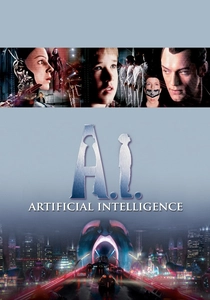
A.I. Artificial Intelligence (2001)
Description: A poignant exploration of what it means to be human, focusing on a robotic boy's quest for love and acceptance. The film blends futuristic technology with deep emotional storytelling.
Fact: The project was originally developed by Stanley Kubrick before being passed to Steven Spielberg. The film's ending was a point of much debate among audiences and critics.
 Watch Now
Watch Now 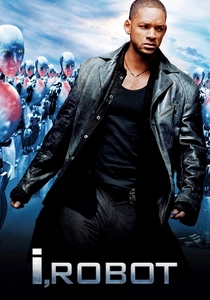
I, Robot (2004)
Description: A sci-fi thriller that explores the ethical dilemmas of artificial intelligence and robotics, set in a future where robots are integrated into everyday life. Its action-packed narrative is underpinned by philosophical questions.
Fact: The film is loosely based on Isaac Asimov's short stories. The robots in the film were designed to follow Asimov's Three Laws of Robotics.
 Watch Now
Watch Now 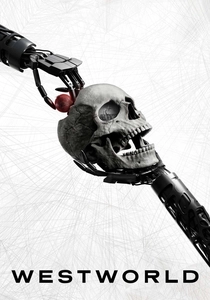
Westworld (2016)
Description: A TV series that delves into the consequences of artificial intelligence gaining consciousness in a futuristic theme park. Its complex narrative and exploration of free will and identity are compelling.
Fact: The series is based on the 1973 film of the same name. It was one of the first major productions to be shot in 4K resolution.
 Watch Now
Watch Now 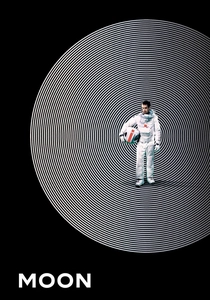
Moon (2009)
Description: A thought-provoking sci-fi film about isolation, identity, and the ethical implications of cloning. Its minimalist setting and emotional depth make it a standout in the genre.
Fact: The film was made on a modest budget of $5 million. It was director Duncan Jones' debut feature and won several awards, including a BAFTA for Outstanding Debut.
 Watch Now
Watch Now 
Her (2013)
Description: A unique love story between a man and an artificial intelligence, examining loneliness, connection, and the evolving relationship between humans and technology. Its warm, futuristic aesthetic contrasts with its deep emotional core.
Fact: The voice of the AI, Samantha, was performed by Scarlett Johansson, who replaced Samantha Morton after initial filming. The film won the Academy Award for Best Original Screenplay.
 Watch Now
Watch Now 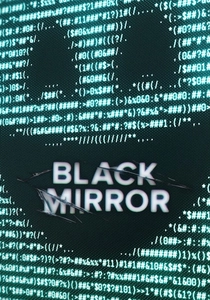
Black Mirror (2011)
Description: An anthology series that examines the dark and often unsettling implications of technology on society. Each episode presents a standalone story with themes of artificial intelligence, virtual reality, and human behavior.
Fact: The series was inspired by The Twilight Zone. The title refers to the black screens of devices like TVs and smartphones when they are turned off.
 Watch Now
Watch Now 
